
Driven by big data, intelligence and fully connected technologies, the era of Internet of everything and pan-media is approaching, and global news communication education is facing major reforms and adjustments.
This is a common problem faced by the global journalism education community. It needs to bring together the wisdom, strength and courage of the academic community to give possible answers.
To this end, on October 13, 2018, “International Journalism and Communication Deans Conference (2018) and 2018 China Communication Forum” was held at Renmin University of China, which was jointly launched by China Higher Education Society Journalism and Communication Professional Committee, School of Journalism and Communication of Renmin University of China and Communication Research Association of the Chinese Association for Journalism and Mass Communication.
Liu Wei, President and Deputy Party Committee Secretary of Renmin University of China, reported that upon entering the beginning of the new century, the news communication education community has made necessary adjustments and innovations in terms of concepts, goals, content, and paths, and has achieved rich experience and remarkable achievements. However, micro, detailed and phased repairs and optimizations are difficult to adapt and lead the overall transformation of the communication and media industry. Education needs to be strategically and systematically reconstructed.
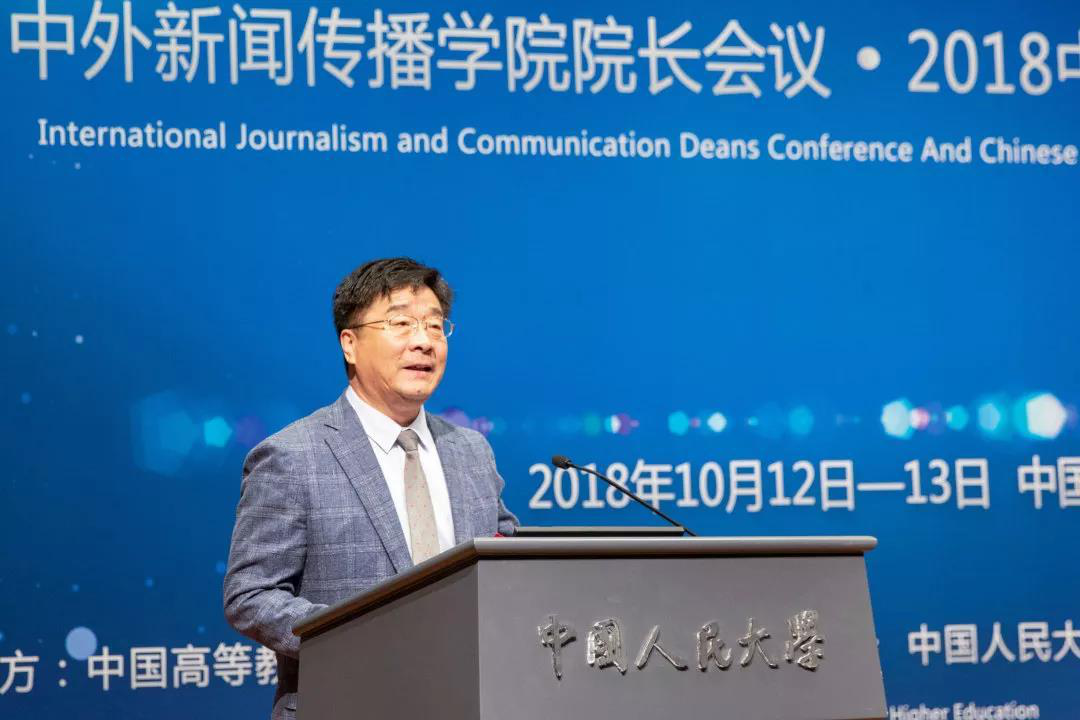
【Welcome Speech】
Liu Wei, President and Deputy Party Committee Secretary of Renmin University of China
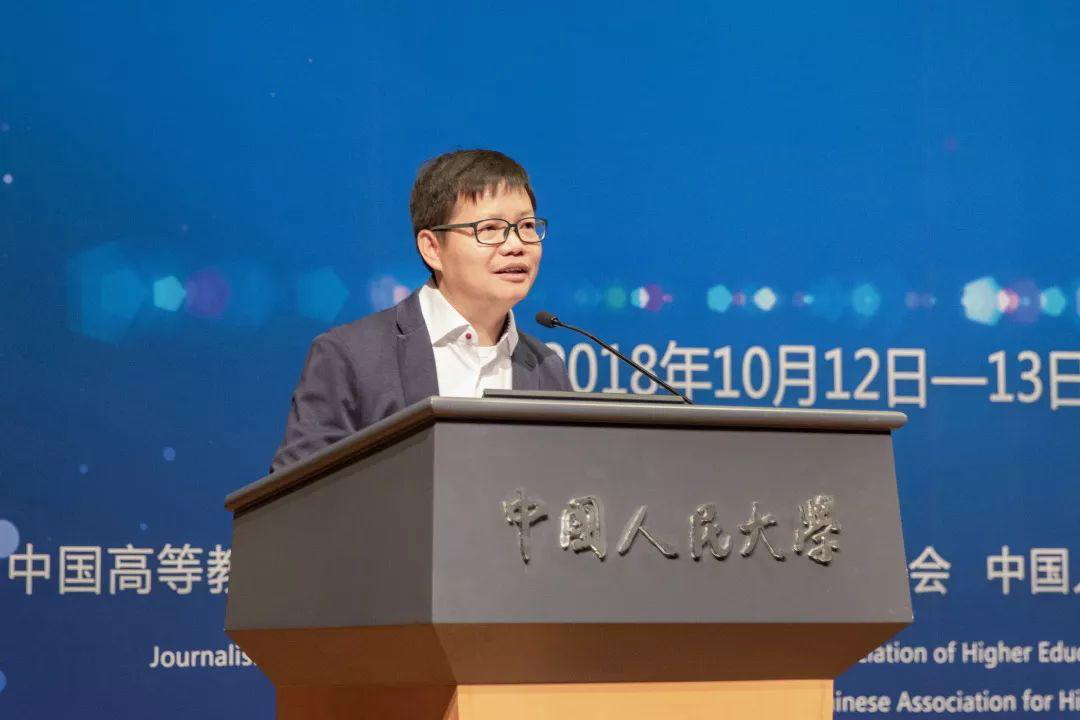
【Chair】
Zhou Yong, Professor, Party Committee Secretary and Associate Dean of School of Journalism and Communication, Renmin University of China
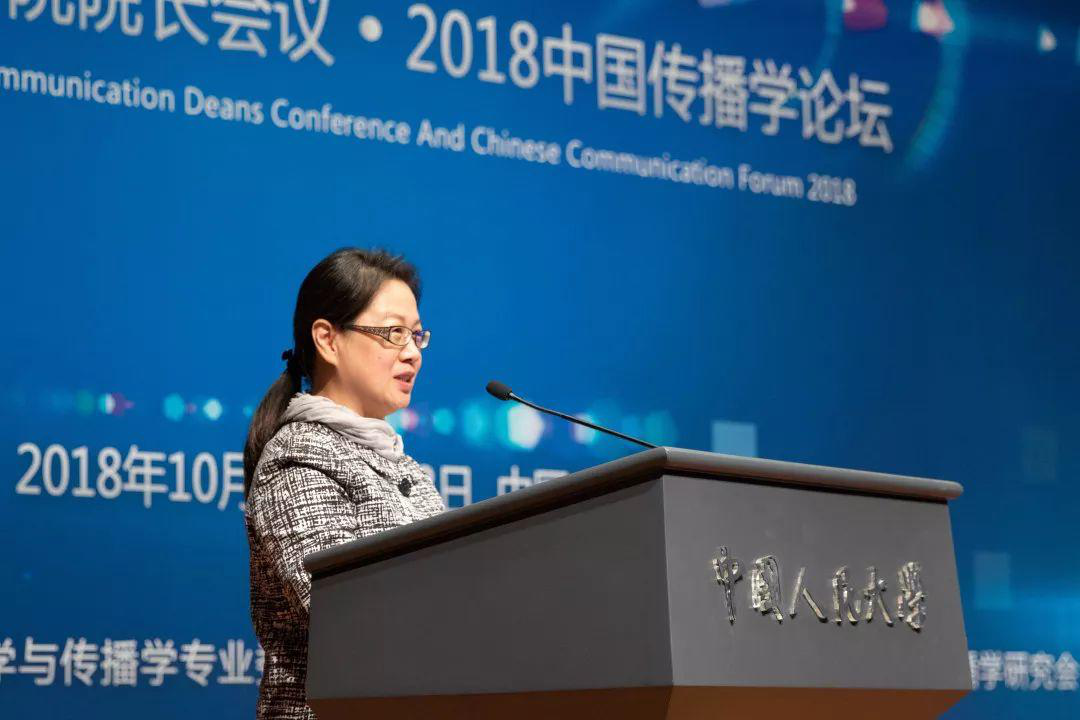
【Chair】
Wang Runze, Professor and Associate Dean of School of Journalism and Communication, Renmin University of China
Yang Guobin, associate dean of the Annenberg School of Communication at the University of Pennsylvania, noted that the current journalism system and communication education do not do enough to enhance humanistic values and human diversity. In his opinion, communication can be regarded as a kind of translation, with different points of view or the intention of pursuing difference. Translators will attach importance to the value of difference and accept different viewpoints. If our purpose is to better understand the world and other people, our research purpose will have more social practical significance for the public, rather than merely pursuing an academic achievement for ourselves.
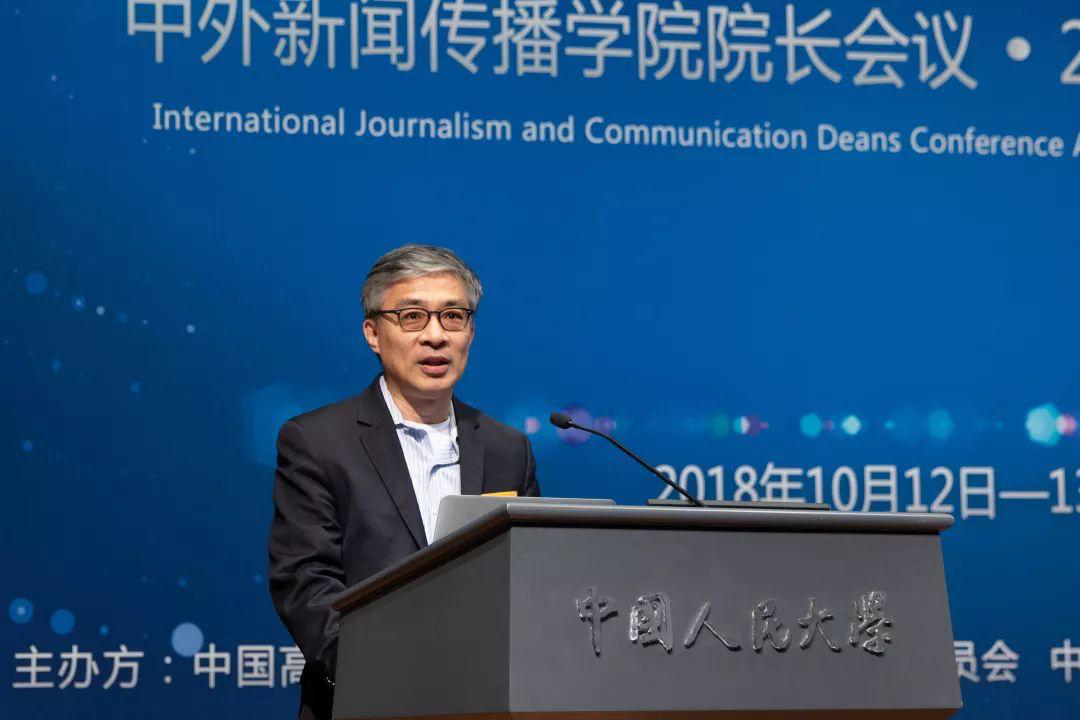
【Communication as Translation and Some Practical Implications for Knowledge Production】
Yang Guobin, Professor and Associate Dean for Graduate Studies, Annenberg School for Communication
Professor Maria Ryan-Rios, associate dean of the School of Journalism and Mass Communication at the University of Georgia, described her school's strategy. Given the cost and speed of technology change, the school has invested heavily in student training, working with industry partners to help students become proficient in the latest technology, focusing on best practices and practices. For example, students learn about the technology of VR to make movies through the course, so that they know which stories are best told through this technology, and how to better share these stories.
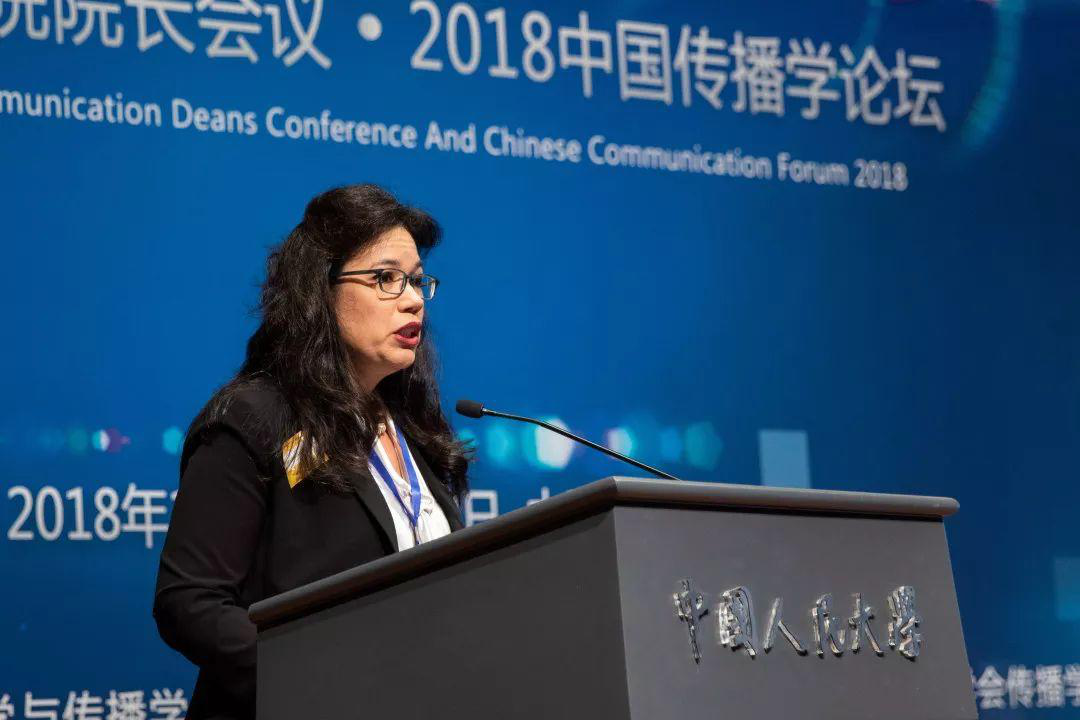
【Technology and the Curriculum for the Future: Managing Constant Change】
María E. Len-Ríos, Professor of Public Relations, Associate Dean for Academic Affairs, Grady College of Journalism and Mass Communication, University of Georgia
Xiong Chengyu, Chair of Communication Research Association of the Chinese Association for Journalism and Mass Communication, Professor, School of Journalism and Communication, Tsinghua University, reviewed the development course of communication from 1997 to now, and expounds the frontier and expansion of communication theory research from three aspects: the deepening of the concept of communication theory, the diversification of approaches, and the expansion of research fields.
Xiong believes there are four perspectives for communication methodology innovation in the era of big data: First, many classic methods are irreplaceable; Second, the reform, integration and update of big data on traditional methods; Third, the development of computing and communication at home and abroad; The fourth is the paradigm innovation of cognitive-communication. He also identified 10 current academic frontiers in communication field.
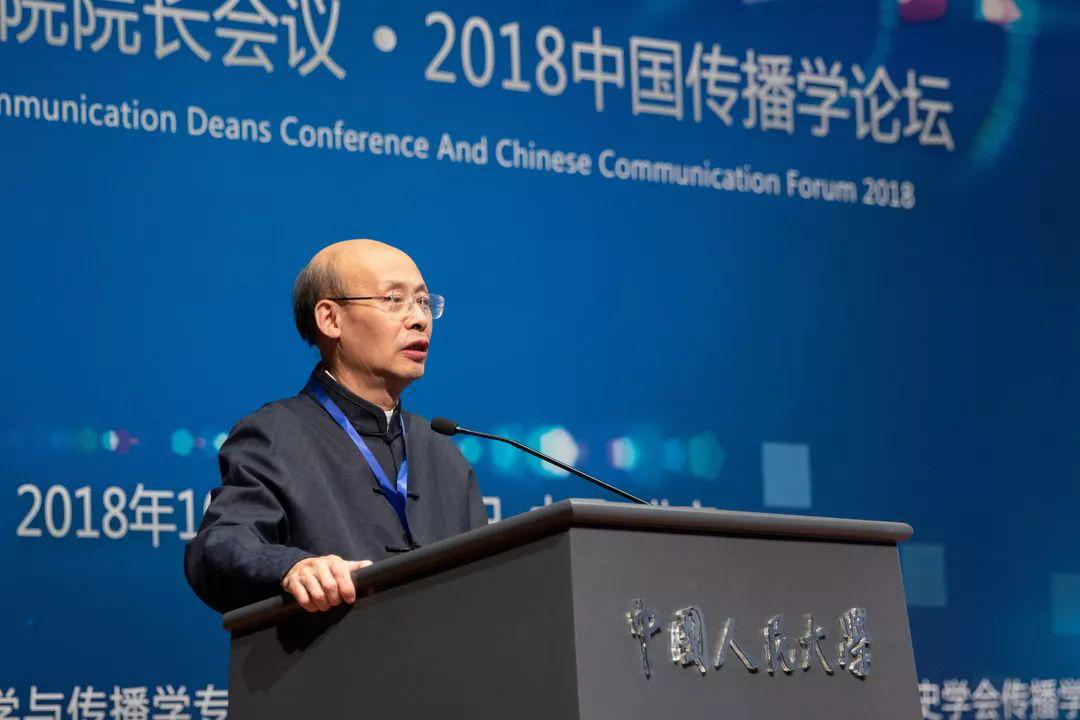
【Positioning and Extension: the 20 Year History of Chinese Communication Discipline】
Xiong Chengyu, Chair of Communication Research Association of the Chinese Association for Journalism and Mass Communication, Professor, School of Journalism and Communication, Tsinghua
University
Zhang Kun, Leading Scholar and Professor, School of journalism and Information Communication, Huazhong University of Science and Technology, said that the journalism education in Huazhong University of Science and Technology adheres to the importance of subject in the process of running school, has an independent disciplinary system, and maintains a benign interactive relationship with the industry. It is an important tradition for a college to be governed by professors. In college governance, the dean or dean, who is also a professor, bears a particularly important responsibility for the development of the college. He also mentioned that each teacher has an independent studio, and the school adheres to the spirit of competition.
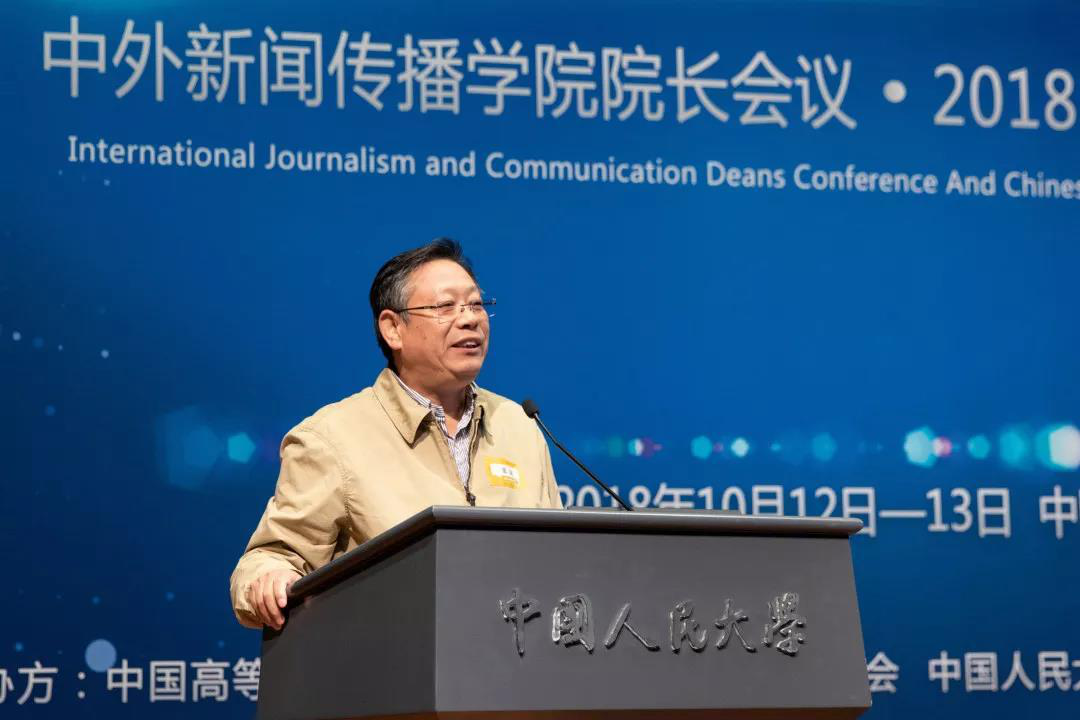
【Understanding Chinese Journalism and Communication Education: the Mode of Huazhong University of Science and Technology】
Zhang Kun, Leading Scholar and Professor, School of journalism and Information Communication, Huazhong University of Science and Technology
Professor Zhang Taofu, executive dean of The School of Journalism of Fudan University, said that the challenges of journalism and communication come from three aspects: knowledge system, industry practice and education. As for the educational direction of journalism and communication, Zhang said it needs to be redrawn on the basis of value level, knowledge level, including talent ability.
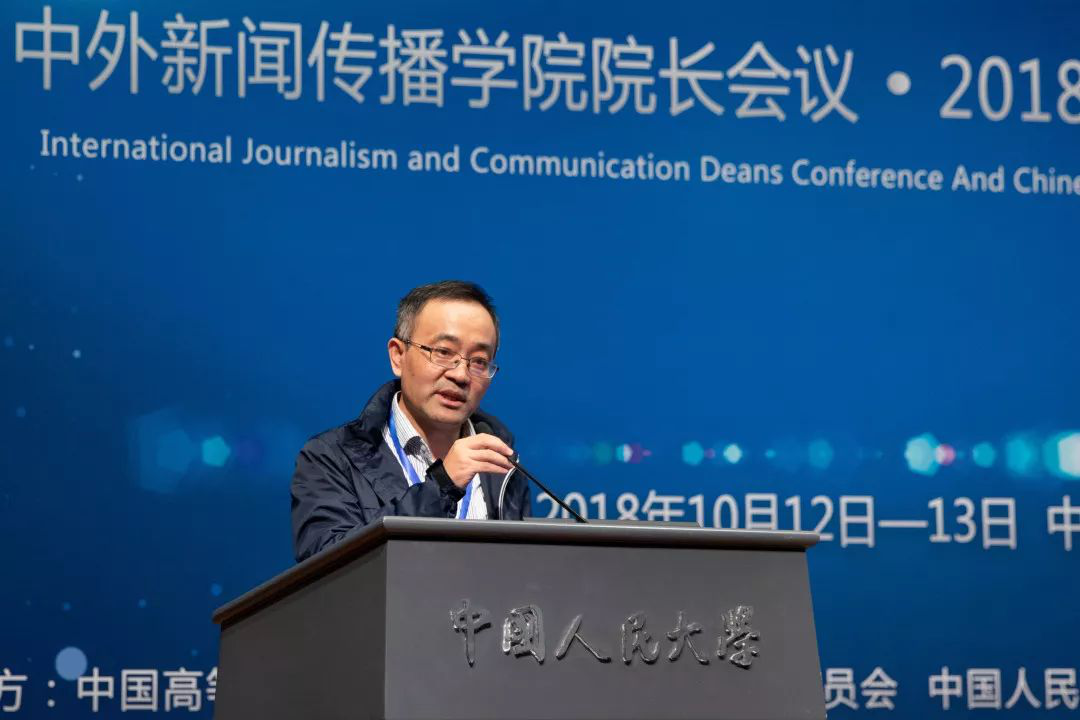
【Reshaping Journalism and Communication Professional Framework】
Zhang Taofu, Professor and Dean of Journalism School, Fudan University
Qiangyuexin, Professor Qiangyuexin, dean of School of Journalism and Communication, Wuhan University, raised three questions on practical teaching of journalism and Communication. First, practice teaching or experiment teaching? With the development of technology, what used to be practical teaching has now become more experimental. Second, standardized or innovated? At present, the standardization of experimental teaching is not enough. It is necessary to innovate on the basis of standardization. Third, commonness or individuality? He believes that commonality is needed, but personality is especially needed, which is related to the school's personality, subject characteristics, and even its industry and region.
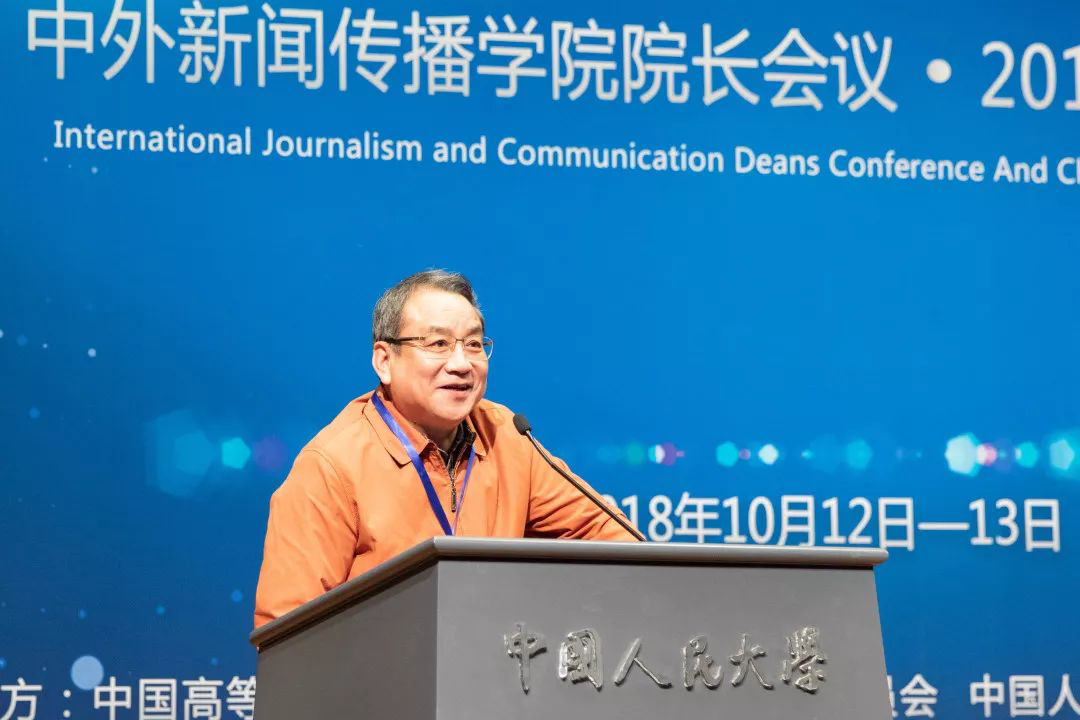
【Reflections on Teaching Practices】
Qiang Yuexin, Professor and Dean of School of Journalism and Communication, Wuhan University
Tom Reichert, professor and Dean of College of Information and Communications, University of South Carolina, shared the university's experience in intercollegiate and interdisciplinary collaboration.The University of South Carolina's inclusion of libraries with information science and mass communication and journalism education. That allows the two schools to provide better data science information, and provide stronger support for students in the library and information science.
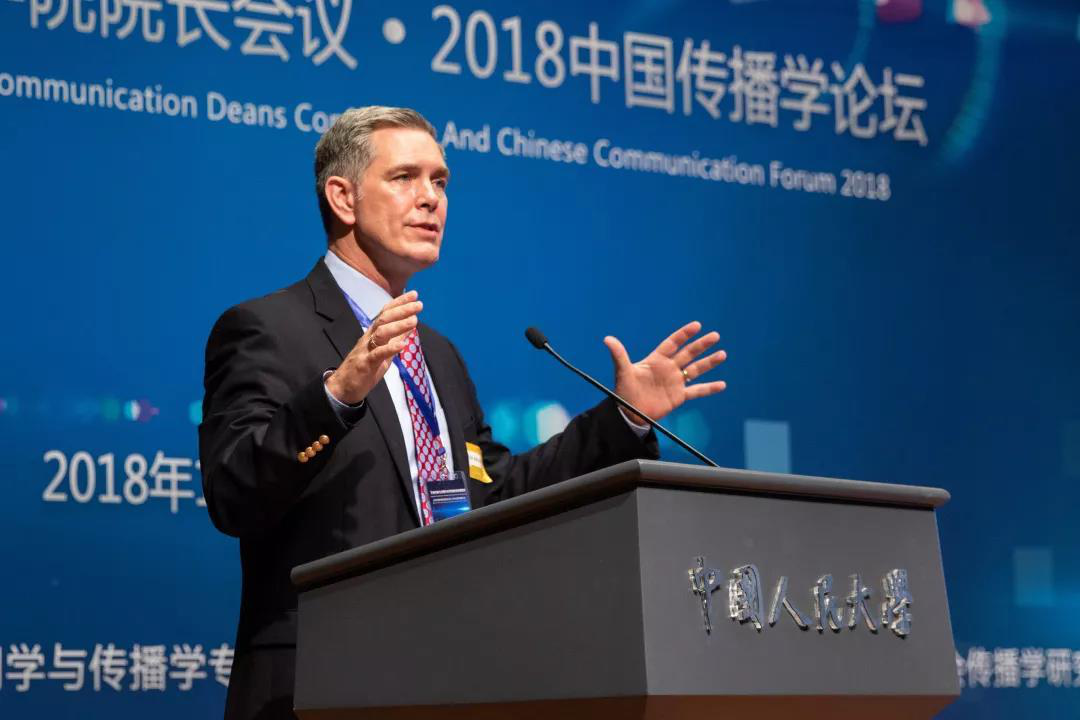
【Responding to the Impact of Data and Technology on Journalism and Mass Communication Education】
Tom Reichert, Professor and Dean of College of Information and Communications, University of South Carolina
Jiang Xiaoli, Professor and Dean of Penguin New Media School, Sichuan University, said that journalism and communication education should be a collaborative communication system with exchange of resources, forming advantages and characteristics through the combination of course modules, to construct a new model of news communication education which is full of tension, inclusive and open.
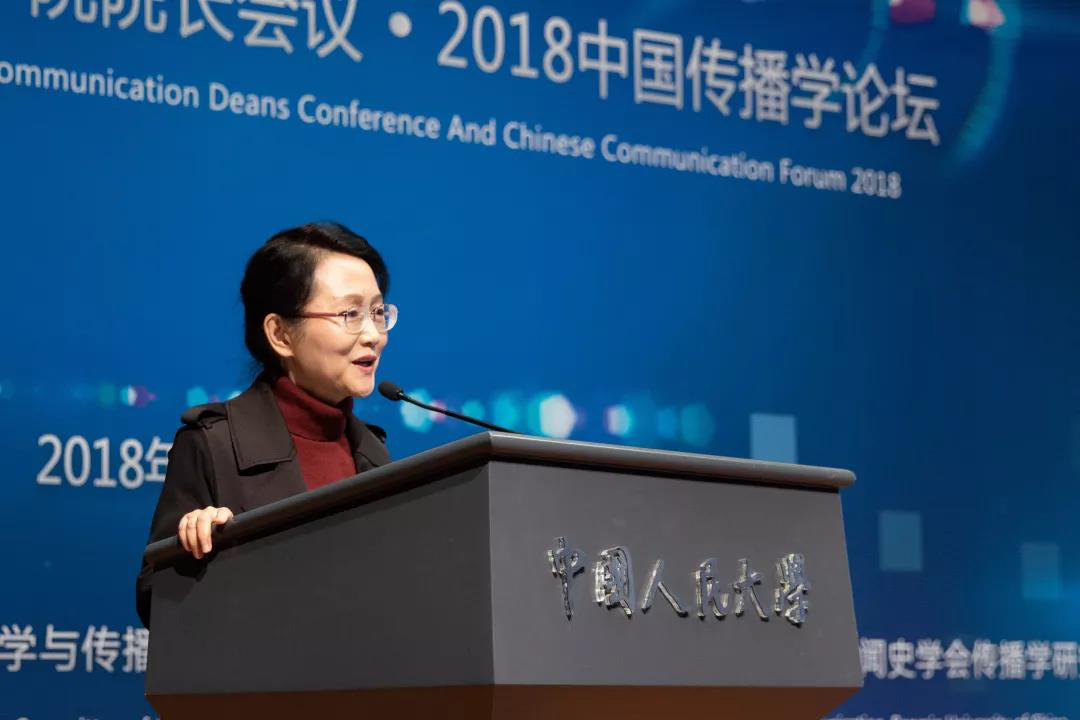
【Knowledge Updating and Fusion of Horizons: Reflections on Journalism and Communication Education in the Era of Internet of Everything】
Jiang Xiaoli, Professor and Dean of Penguin New Media School, Sichuan University
He Suliu, Professor and Associate Dean of Televison School, Communication University of China, said that the current format of media in China brings a lot of ideas to media practice and research, but causes a lot of confusion and difficulties in education since the perspectives of research and teaching are very different.
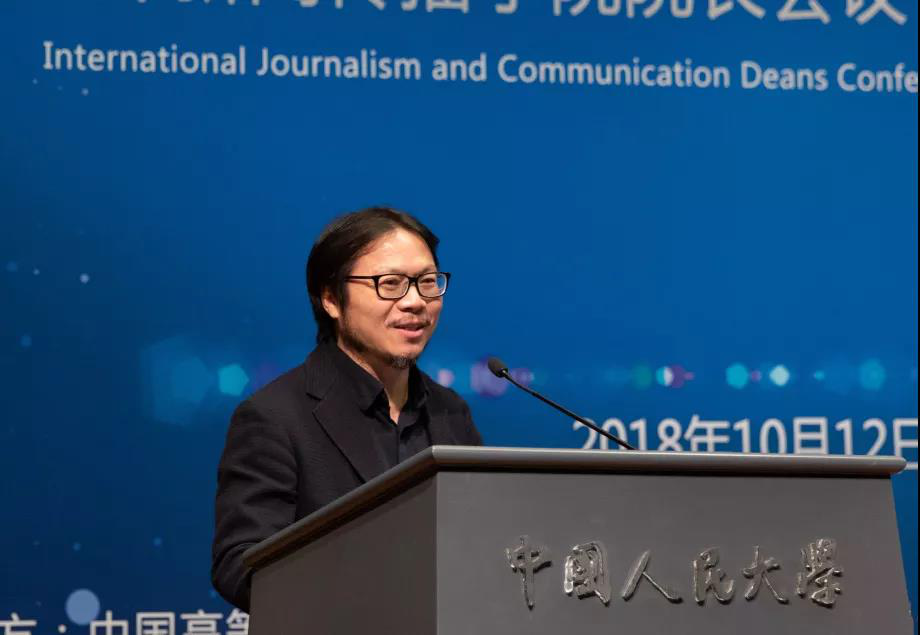
【 Rebuidling the Knowledge Genealogy and Innovating the Paradigm of Journalism and Communication Education】
He Suliu, Professor and Associate Dean of Televison School, Communication University of China
Hu Baijing, Professor and Executive Dean of School of Journalism and Communication, Renmin University of China, reported that today’s technological change has highlighted the importance of the legitimacy and subjectivity of journalism and communication. Journalism and communication education should be innovated from two perspectives: internal reconstruction and external expansion. On the one hand, the barrier among different majors should be removed. On the other hand, students should be encouraged to cross the border of disciplines and cultures. In addition, the innovation should focus on improving students’ mind and aesthetic consciousness. School of Journalism and Communication of Renmin University of China has launched a number of action plans on education, and the preparation for the undergraduate-oriented international communication project and the graduate-oriented strategic communication project is underway.
